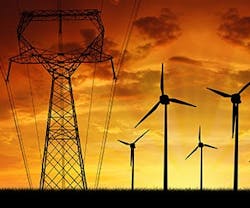New Program to Enable Low-Cost Distributed Power Generation
The DOE has announced that up to $30 million of Advanced Research Projects – Energy (ARPA-E) funding will be made available for a new program focused on the development of transformational electrochemical technologies to enable low-cost distributed power generation. ARPA-E’s Reliable Electricity Based on ELectrochemical Systems (REBELS) program will develop fuel cell technology for distributed power generation to improve grid stability, increase energy security, and balance intermittent renewable technologies while reducing CO2 emissions associated with current distributed generation systems.
“ARPA-E is re-imagining distributed generation by pushing the boundaries of fuel cell technology to improve grid resiliency and reliability,” said Cheryl Martin, acting director of ARPA-E.
According to the DOE, renewable generation technologies, such as solar and wind, pose a fundamental challenge to centralized power generation due to variability and intermittency. In addition, centralized generation frequently requires long transmission distances that result in power losses and leave lines susceptible to disruption during natural disasters. Many of these challenges can be mitigated through a distributed system, where power is generated in close proximity to the end-user. REBELS addresses these challenges by developing innovative, low-cost distributed generation technologies using electrochemical power generation that can also act as a storage device.
Current fuel cell research generally explores technologies that either operate at high temperatures for grid-scale applications or low temperatures for vehicle technologies. REBELS projects will focus on developing intermediate-temperature fuel cells through innovative designs, fuel activation approaches, and low-cost materials to facilitate widespread distributed power generation. REBELS projects also explore multi-functional fuel cell systems that can store energy like a battery or use electricity to convert natural gas to liquids.
For more information, visit ARPA-E.
